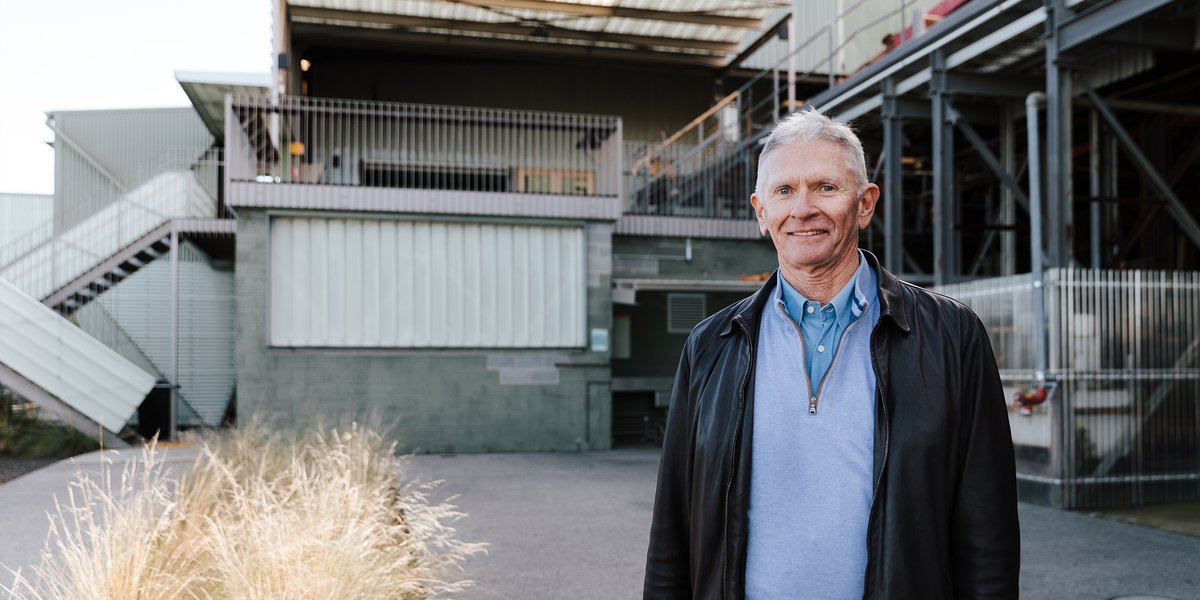John Kamara
"I went from fighting for survival, to going through complex systems in Australia, just trying to live. I went through a lot of very, very blatant, open racism. It was difficult. But also there were some allies, people who were coming around to support me."
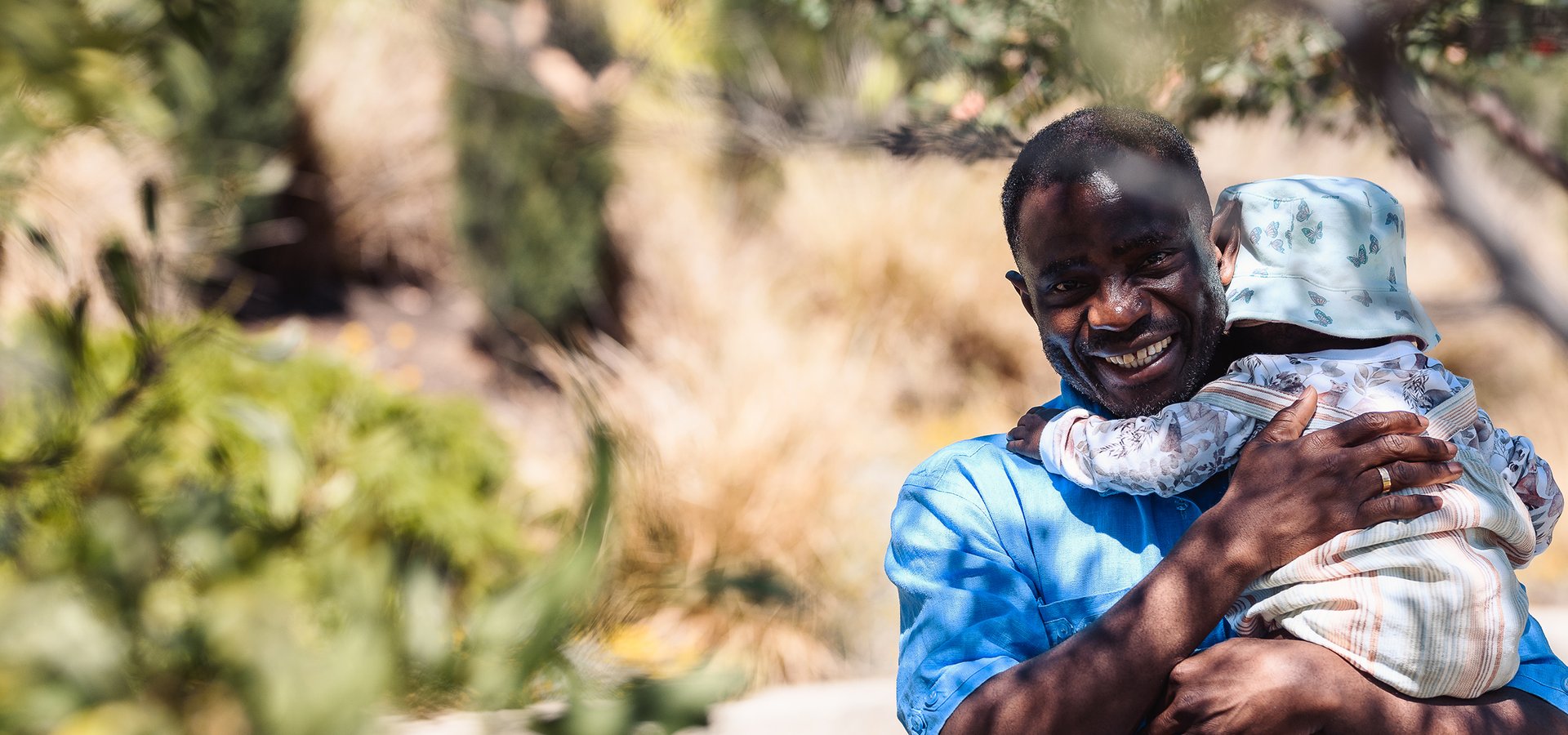
"Advocacy is a big thing, a big part of my life. It’s really, really satisfying to see that recognition of what we’ve done. It’s makes me feel that what I do is worth doing – to make life better, to create change."
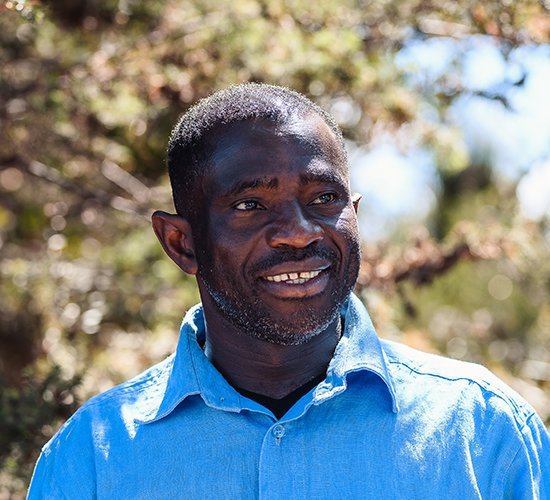
This Tasmanian story first appeared on Little Tasmanian.
At least four times per week, John and Mavis Kamara and their four children gather at the dinner table. They share a meal and come together as a family. Most of all, it is a time for stories.
John and Mavis tell their children about what it was like growing up in Sierra Leone and Ghana. They talk about their parents and grandparents, cousins and nieces. They share memories from their childhoods, and they pass on to their children what it means to be African. John says, “We bring the stories alive. We say it was a beautiful childhood and talk about special moments. Even though they won’t have the first-hand experience, hearing those stories is just amazing. When we sit there, it’s just this massive explosion of community, of family. It’s priceless.”
These moments around the dinner table are an expression of the family John and Mavis have created, a family which has its origins in the deep love and connection they share. “We support each other,” John says. “Mavis is my rock. Some of the things I saw were very bad. I had trauma. She walked alongside me on my healing journey. I’ve also watched Mavis go through difficult times, through pregnancy and looking after young children. She couldn’t bring any of her family here to help, because they’re from Africa. We have so much strength from supporting each other. There’s so many things I do in the community now, sometimes I come home exhausted. But I’ll sit down, Mavis will come, we’ll start talking, and I forget my exhaustion. We are a team.”
When John was a child in Sierra Leone, he was immersed in nature and helped his family farm food crops. “I had a really, really beautiful childhood,” he recalls. “We’d go in the morning, out to the bush, and on the weekends, we’d have some cassava. Our houses were built from mud, with palm thatch on top. My father was the local chief, an elder within the community. People would go to him if there was something wrong. But it’s women who run the family; there’s so much respect and regard for women in our culture. At night, we’d sit in the courtyard with our mothers and grandmothers. They would tell us stories of how to live, and how to live as a family unit. We walked miles to where there was a school, and we’d sit down on the floor to learn. So that’s my life when I was young. It was so beautiful.”
“But when I was 11 years old, when things started – the war started – that’s all gone.”
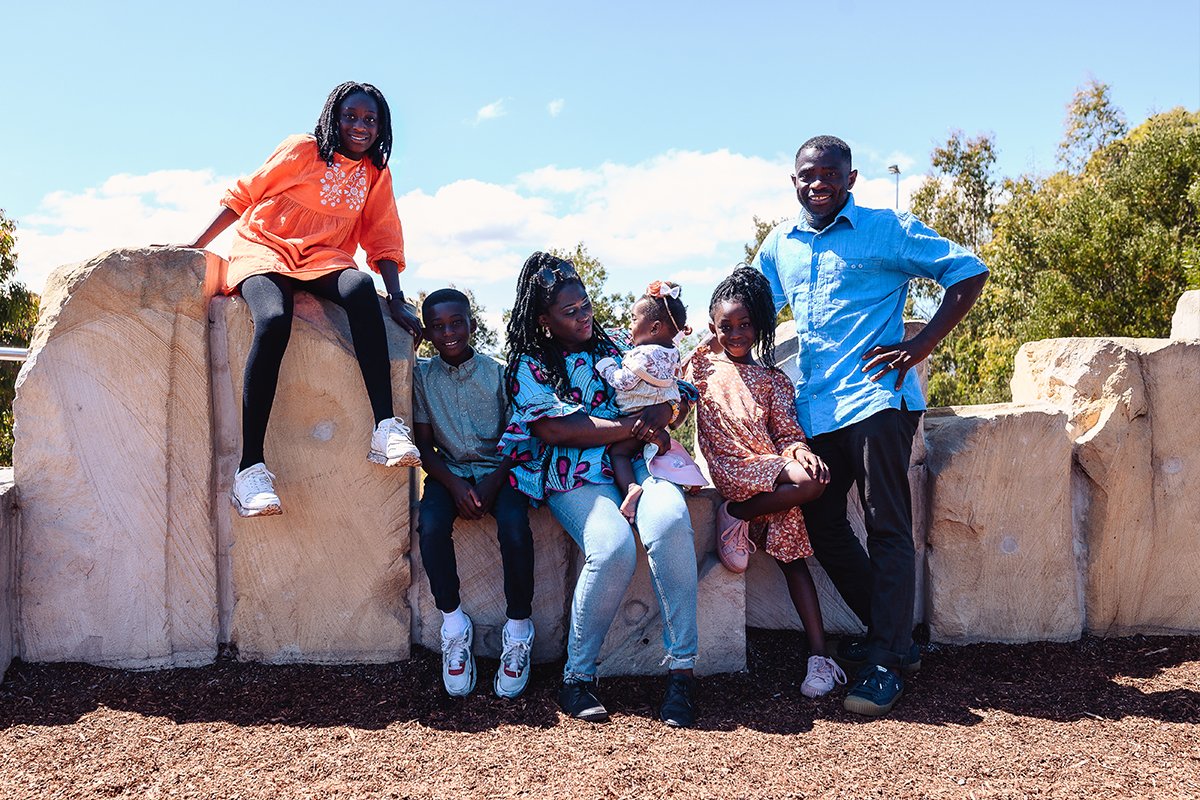
John had to leave Sierra Leone with his brother-in-law. His sister was taken by the rebels, many of whom were young children. “Everyone was trying to go,” John remembers. “If you go one way, you’re killed. If you go the other way, by the sea, you might get drowned. We chose to go the boat way, and we were lucky.” They managed to make the Atlantic crossing to Guinea. It took them a year to finally arrive at an international refugee camp in Ghana.
“The journey and the refugee camp are stories on their own,” John says. “But we got there, and it was a massive moment – a miracle. My sister was there, at the camp.” They spent nearly four and a half years there. It was a challenging time; each person received only small food rations. But there was the opportunity to attend a local Ghanaian school. And it was there he met Mavis.
“Mavis’s story – that’s the good part!” John smiles. “She wasn’t a refugee. She was from Ghana, and we became friends. She really looked after me. People would do anything to survive, going to the bush for food, and that’s what we did for years. Mavis would bring food for me, sometimes money. We became very close, and… just fell in love, really.”
It was through Mavis that John reconnected with being part of a larger family. “Mavis took me to her mum, sisters, her whole family. And that extended to my sister, brother-in-law, and my niece, who was born in the camp. We became this extended family in Ghana, which was amazing.”
John was legally an adult by the time he emigrated to Australia on a refugee visa. Miraculously, even though his application was processed separately to his sister’s and brother-in-law’s, they were all resettled in Tasmania. But he couldn’t bring Mavis because she wasn’t a refugee. It took four years for them to be reunited.
In the meantime, John made his way in Ravenswood, Launceston, alone. “I was 19 years old. I was walking into a really unknown and uncertain situation. I went from fighting for safety, fighting for survival, to going through complex systems in Australia, just trying to live. I had to learn how to go to the supermarket, how to navigate Medicare, the tax office, everything. The system, paperwork. I went through a lot of very, very blatant, open racism. People saw me as different, most of it because they don’t know. People were throwing eggs at my house. It was difficult. But saying that, there were some allies, people who were coming around to support me, like the church. I developed some English skills in Ghana but still had to study it at TAFE. I went through uni; my TAFE teacher helped me enrol. Mavis joined me in 2009, and, after graduation, we got married and found work in Hobart.”
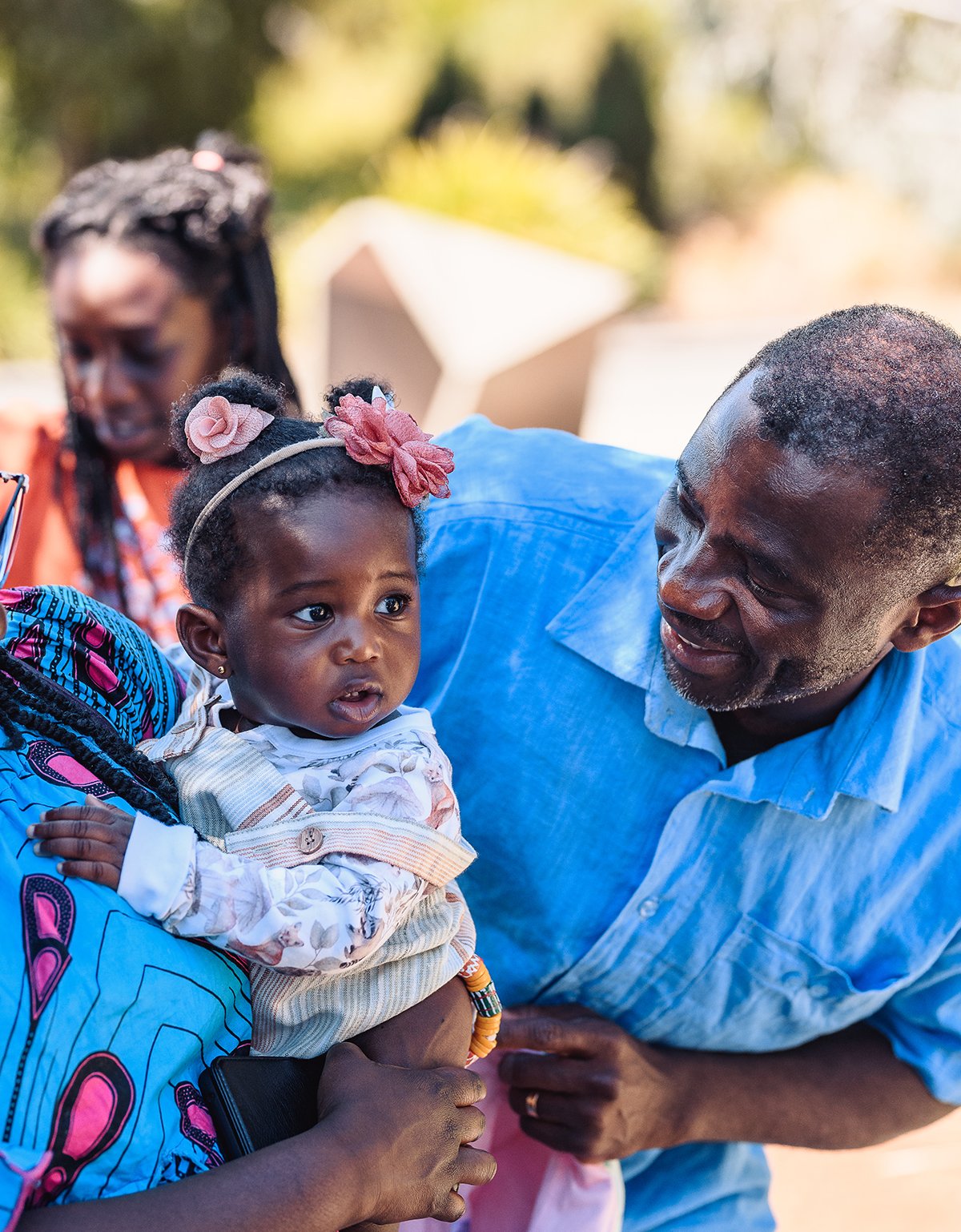
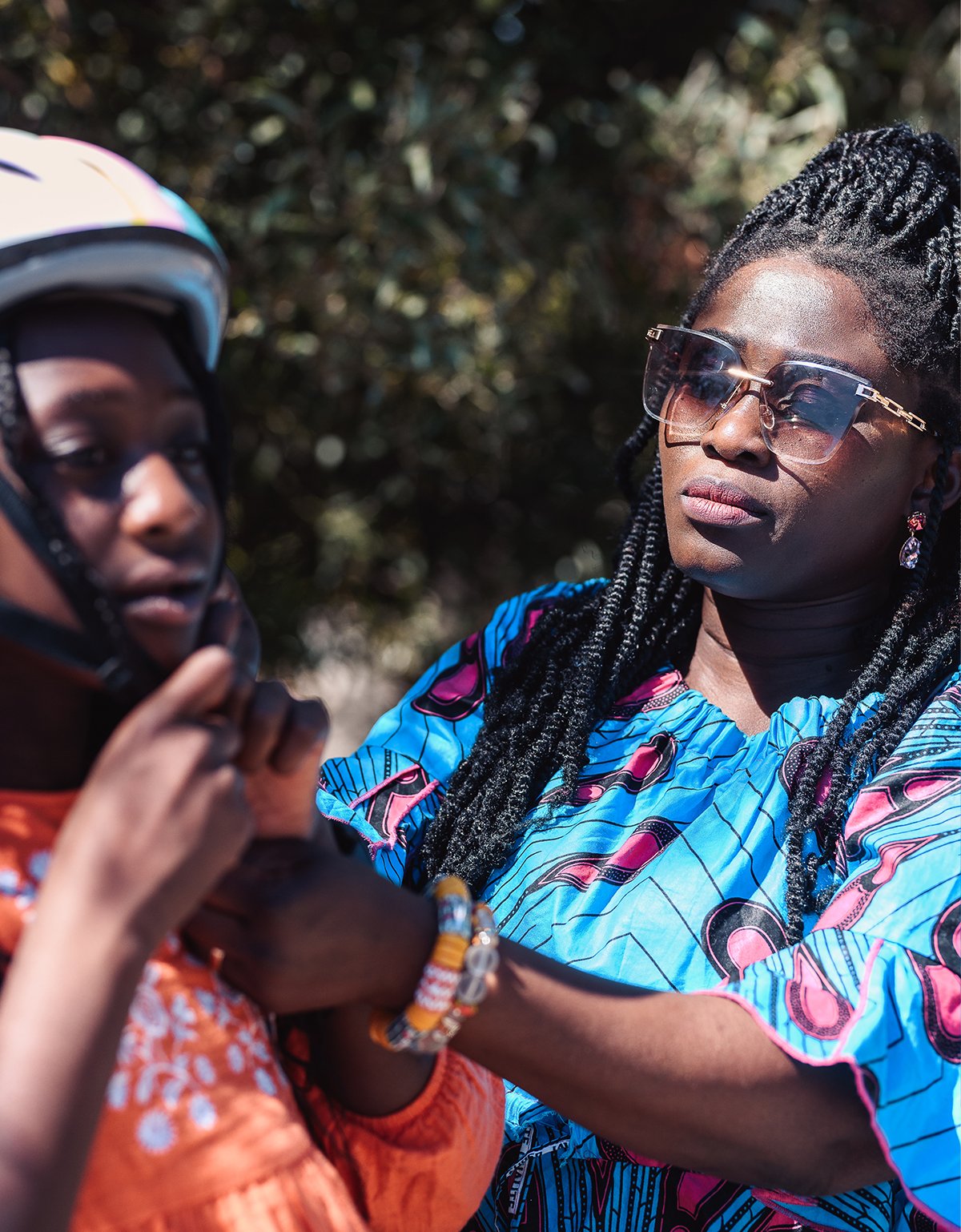
John and Mavis had their first daughter in 2011. They were overjoyed to begin a family, but being a new parent can be as hard as it is wonderful – a situation made more challenging given John and Mavis were going it alone. “We had to do it ourselves. But, we thought, what can we use in our lived experience? Thinking back to childhood times, and what that means for our kids and our family – we try to stay together as a community. In Africa, we say that the village raises a child. We support our children to know that we are close.”
John and Mavis’s experience of raising children taught him a lot, about family, community, relationships, and himself. “At one point, we had three kids under four,” he recalls. “It’s a stressful time! I’ve learnt it’s ok to stress. You’ve got a new life to look after – a whole new human being. You have to keep that human being alive! Sometimes they get ill for no reason – you’re not doing anything wrong! Whether you are a single or couple raising children, it seems tough. But always know you will get through – that’s my number one piece of advice.”
“Reach out for help,” he says. “Mavis reached out to the Child and Family Learning Centre. It was hard at first, sensing that people weren’t used to seeing a Black person. But we made lifelong friends with those young parents and staff. So don’t feel that you are all alone. There are people going through similar things. It helped us a lot to how they were coping, how they were learning.”
Talking with each other is part of what has kept John and Mavis’s relationship so strong. “We only had each other, so we’d talk about it. It’s a stressful time, so sometimes you don’t understand each other or have a disagreement or argument. So, we had this agreement between ourselves that, before we go to bed, we’ll talk about the issues. We’d say, ‘Today, the baby’s bottle wasn’t clean, and I asked you to wash it. Maybe you didn’t hear. And ‘Oh, I’m sorry, I didn’t hear that.’ So, talking about it, supporting each other. We really have that understanding.”
John and Mavis’s strong belief in family and community defines how they live. “We need to work together. We need to grow together, not apart. Because our children – this is their home. How can we make it better? For me, that’s what family is. You look after each other. Be there for each other. Go through difficult times together. Go through the happy times together. When Mavis and I went through raising kids together, we learnt a lot from that experience. They shape who you are.”
Today, John draws inspiration from his experiences to work with the African community, and the broader multicultural community, to bring positive change to Tasmania. “Those experiences I went through, sometimes we learn from that. The experiences and knowledge and education we got from that, we use that to give back to the community,” he explains. John’s daytime job is as a practice leader in child safety. Outside of that, he provides emotional and cultural support to people navigating the same systems he needed to learn when he first arrived in Tasmania. “It’s so hard here, now, for someone to come to Tasmania. That person has skills back home, but those skills are not recognised. That person needs a job. That person needs to feed their family, to send money back home. They need housing.” John helps them with resume writing, preparing for interviews, and filling out applications. He runs a choir to help people use music to overcome hardships in their lives.
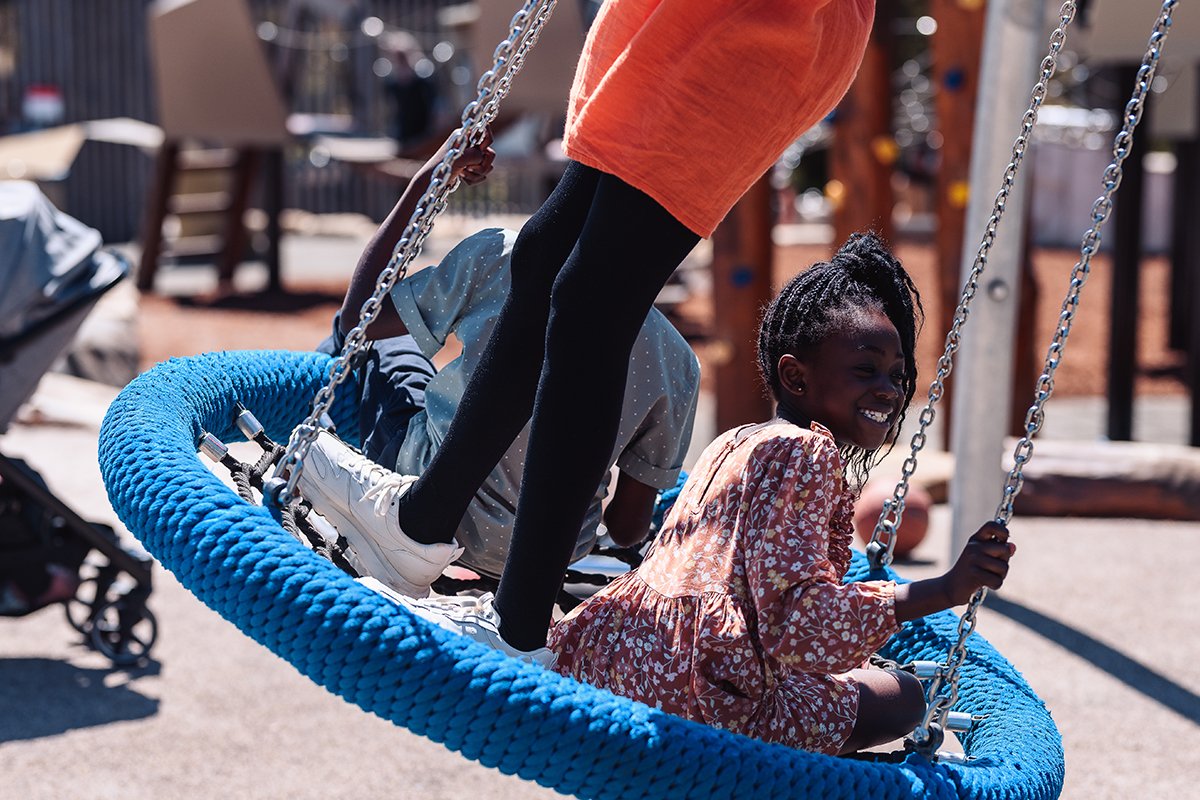
After more than a decade in Australia, John and Mavis returned to Sierra Leone and Ghana for the first time. After their visit, they founded Kamara’s Heart Foundation. “Mavis and I established two schools in Sierra Leone. We have a reading club in Ghana. In Sierra Leone, people don’t have breakfast or lunch at school. They don’t have books. There’s no toilets or clean, running water for people to drink. There are about 300 children in the school, and we pay for their school fees, provide stationery, provide sanitary products for the girls.” Kamara’s Heart also supports Tasmanian students, providing hampers and groceries to newly settled families. John’s family is there for nearly all of it. It’s what keeps him going and makes such a full life possible. “We are really, really in it together,” he explains. “Most of the things I do, all the activities and programs, we’re there as a team”
John was named Tasmanian Australian of the Year for 2023. “Advocacy is a big thing, a big part of my life,” he says. “Kamara’s Heart is from about two years ago. But we’ve been doing this a long, long time – probably over 10 years. It’s really, really satisfying to see that recognition of what we’ve done. It’s makes me feel that what I do is worth doing – to make life better, to create change. One person I’ve worked with, she said, ‘John, it has given us some hope. I know we can do it.’ If that’s what this award can do, give that hope, give that inspiration, I’m happy with it!”
For John, sharing his story is part of creating community, to show people that they are not alone. “We are inspiring and creating change within the African community, to help educate and make change in the wider Tasmanian community. I feel very honoured to be part of Little Tasmanian, because Tasmania – we all need to make it better. How can we make it fair for all? That’s the conversation I want to start.”

We worked with southern Tasmanian photographer Moss Halliday-Hall for this Tasmanian story.
Read about more Tasmanians
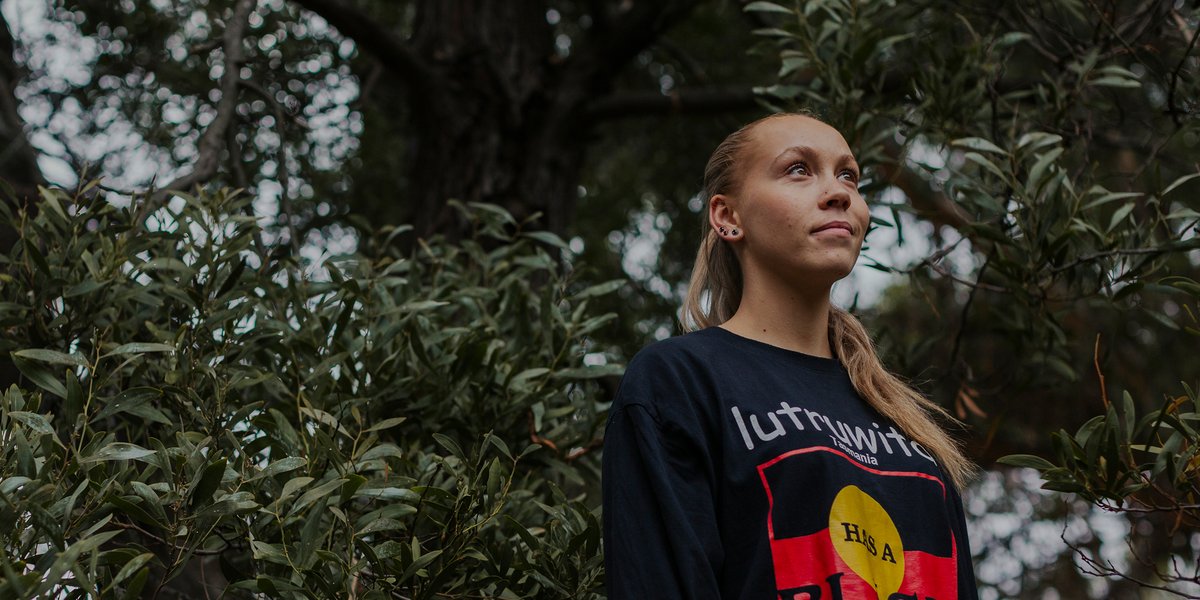
Kitana Mansell
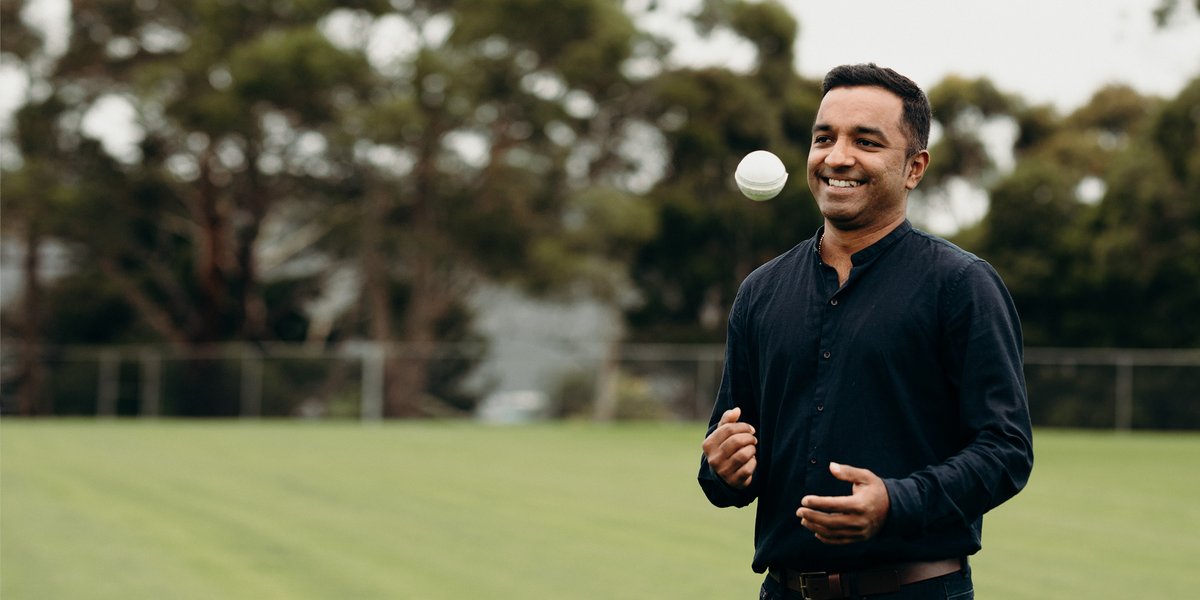
Prajit Parameswar
